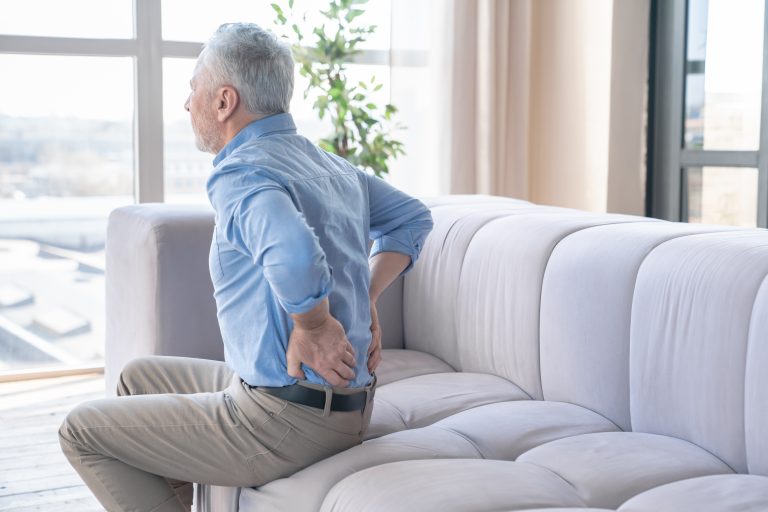What is a Degenerative Spine?
Degenerative changes in the spine are common and occur in most people, with varying degrees of severity. There are several contributing factors for these degenerative changes, but aging is the most common degenerative spine condition cause. As you get older, the discs of cartilage that provide support between the vertebrae lose water and begin drying out. The lack of water in the discs may cause their flexible structure to become more susceptible to bulging and cracking.
A bulging or herniated disc is not always painful depending on the proximity to the spinal cord or nerve root. Furthermore, a smooth layer of cartilage that lines the spinal joints may wear away, causing pain and stiffness.
While normal strain on the spine is typically the main degenerative spine cause, these changes can develop into other degenerative spine conditions, such as bone spurs or osteophytes. These conditions can cause debilitating pain and other symptoms if left untreated. Although a diagnosis of a degenerative spine may seem overwhelming, 90% of people will show signs of disc degeneration at some point in their life.
Degenerative Spine Causes
- Trauma: Any form of traumatic injury can cause the spine to degenerate and weaken faster than it should. Lifting heavy objects, twisting, or bending in an awkward way and absorbing impact in a car accident or fall can damage the bone, cartilage, muscles, nerves, and ligaments of the spine. Enduring the constant trauma of a job that requires continuous standing, bending, or lifting may also cause damage to the neck or back. Any damage to the spine can take time to heal and may lead to permanent damage.
- Genetic predisposition: Some people are more likely to exhibit degenerative changes in the spine due to their genetics. For instance, a person may inherit a condition such as a narrow spinal canal, also known as scoliosis. Certain individuals may also be more prone to bulging discs, herniated discs, or osteoarthritis.
- Lifestyle factors: The toxins in cigarette smoke can damage the cartilage in the spine, which may lead to an earlier onset of degenerative spinal changes. Poor nutrition can also cause the spine to wear and weaken faster.
- Sports: Involvement in a sport that requires repetitive impact on the body can lead to injury. These types of sports can be particularly stressful on the spine, weakening the vertebrae, joints, and discs over time. This puts football players and other high-impact athletes at risk of developing a degenerative spine condition.
- Excess weight: The spine twists and bends as you walk, stand, sit, and complete other daily activities, while supporting the weight of the upper body. These motions are demanding on the spine if it has the additional burden of excess body weight. For this reason, people who are overweight or obese have a higher risk of developing a degenerative spine condition.
Minimally Invasive Degenerative Spine Treatment
Upon diagnosis of a degenerative spine condition, treatment will typically begin with conservative methods. This can include a combination of different treatments including physical therapy, injections, massage, and other options. It can also be effective to make lifestyle changes such as changing your diet and overall living a healthier lifestyle.
If patients don’t feel relief after trying a course of conservative treatment, they may be a candidate for surgery. BEST Health System offers patients access to minimally invasive spine surgery, allowing for a faster recovery time and less complication.
BEST Health System
Our surgeons specialize in minimally invasive spine surgery that is a safer and effective alternative to traditional open back procedures. This offers many benefits, including less risk of infection and no lengthy recovery. For more information on how BEST can help you find relief from chronic neck and back pain, contact us today.
